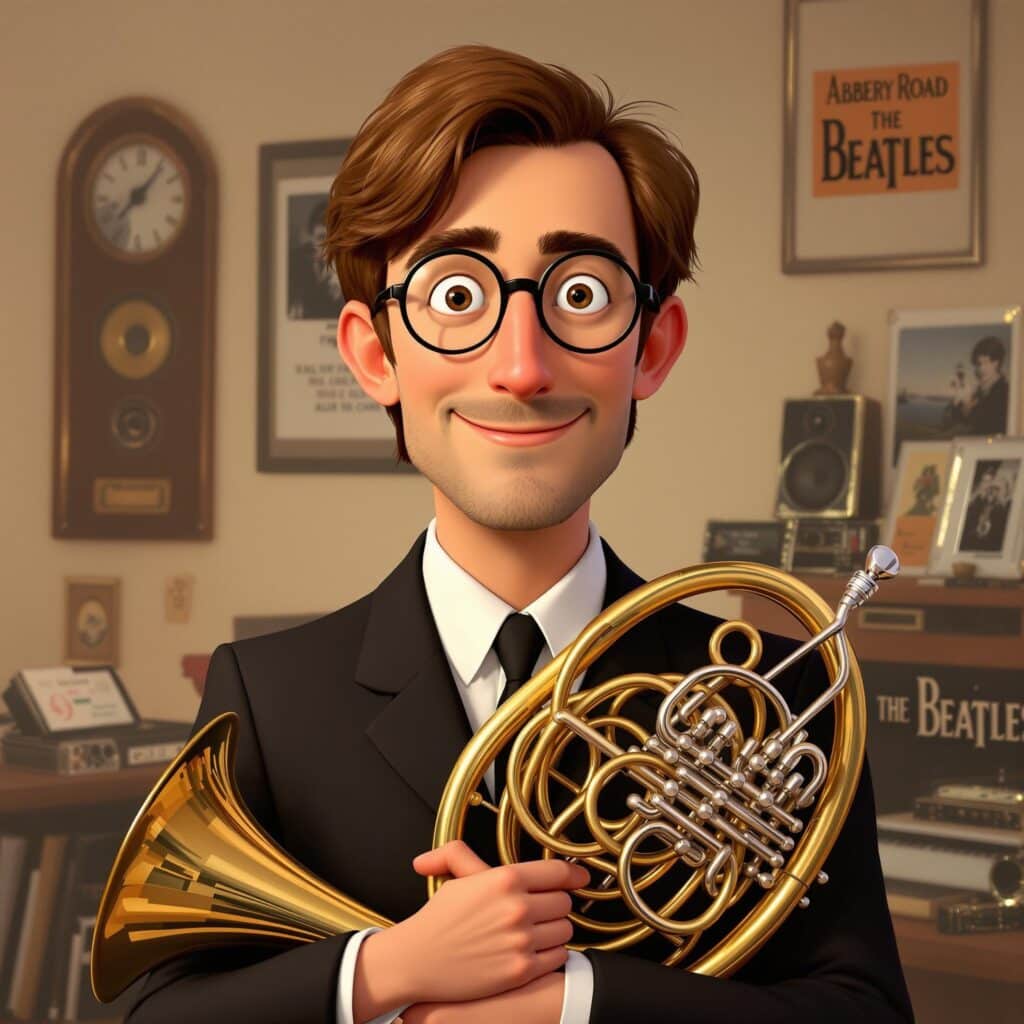Hall of Fame Profile
Introduction
Among the many musical legends who contributed to the Beatles’ recordings, Alan Civil stands out as a master of his craft—a classical musician whose artistry elevated the band’s sound and bridged the worlds of pop and orchestral music. Best known for his unforgettable French horn solo on “For No One,” Civil’s work with the Beatles is a testament to the band’s willingness to experiment and to the timeless power of great musicianship.
Early Life and Classical Career
Born in Northampton, England, in 1929, Alan Civil began playing the French horn as a teenager and quickly rose through the ranks of British classical music. He joined the Royal Philharmonic Orchestra at just 19, and by his early 30s was a principal horn player in the Philharmonia Orchestra and, later, the BBC Symphony Orchestra. Civil was renowned for his warm tone, technical precision, and expressive playing—qualities that made him an in-demand soloist and session musician.
Entering the Beatles’ World
In the mid-1960s, as the Beatles pushed the boundaries of pop music, they began incorporating classical instruments and musicians into their recordings. For the 1966 album Revolver, Paul McCartney envisioned a French horn solo for his intimate ballad “For No One.” George Martin, the Beatles’ producer and a classically trained musician himself, invited Alan Civil to Abbey Road Studios for the session.
The “For No One” Session
Civil’s performance on “For No One” is legendary. The solo, written by McCartney and arranged with Martin, required Civil to play at the very top of the French horn’s range—so high, in fact, that Civil later joked it was “not written for horn, but for trumpet.” Despite the challenge, Civil delivered a flawless, lyrical performance that became one of the most memorable instrumental moments in Beatles history.
His contribution was so significant that he was one of the few session musicians to be named on a Beatles album sleeve—a rare honor that reflected the band’s respect for his artistry.
Relationship with the Beatles
Though his time with the Beatles was brief, Civil’s professionalism and musicianship left a lasting impression. Paul McCartney praised Civil’s ability to interpret his musical ideas and bring a classical sensibility to the band’s work. Civil’s relaxed, good-humored approach also made him a favorite in the studio, where the Beatles valued both skill and personality.
Beyond the Beatles
Alan Civil’s career extended far beyond his Beatles session. He continued to perform with the BBC Symphony Orchestra and the London Symphony Orchestra, appeared on countless recordings, and taught at the Royal College of Music. Civil’s influence can be heard in the work of generations of horn players, and his commitment to musical excellence remained undiminished until his death in 1989.
Legacy and Impact
Civil’s solo on “For No One” is often cited as one of the greatest classical moments in rock music. His ability to blend seamlessly into the Beatles’ sound while maintaining the integrity of his own style exemplifies the spirit of collaboration that defined the band’s later years. For Beatles fans and classical musicians alike, Alan Civil is a symbol of the creative possibilities that arise when genres collide.
Anecdotes and Remembrance
- Civil was paid double the standard session fee for his work with the Beatles, a testament to the difficulty and importance of his part.
- He once recalled that the Beatles treated him “like royalty,” a sign of their respect for his talent.
- Civil’s work on “For No One” inspired other pop and rock bands to incorporate classical musicians and arrangements into their recordings.
The Human Side
Alan Civil was more than a session player—he was a bridge between two musical worlds, bringing warmth, elegance, and a touch of magic to every note he played. His legacy lives on in the timeless beauty of “For No One” and in the hearts of music lovers everywhere.
